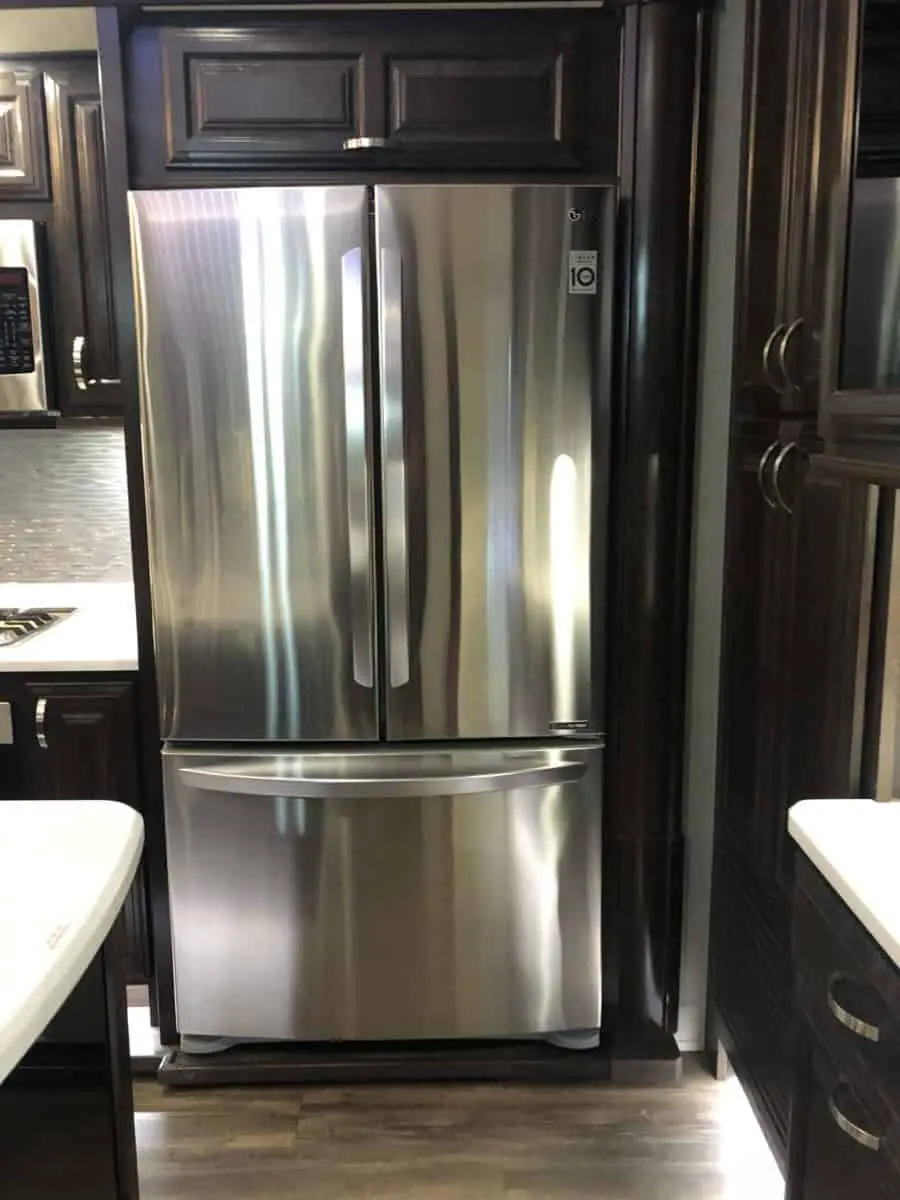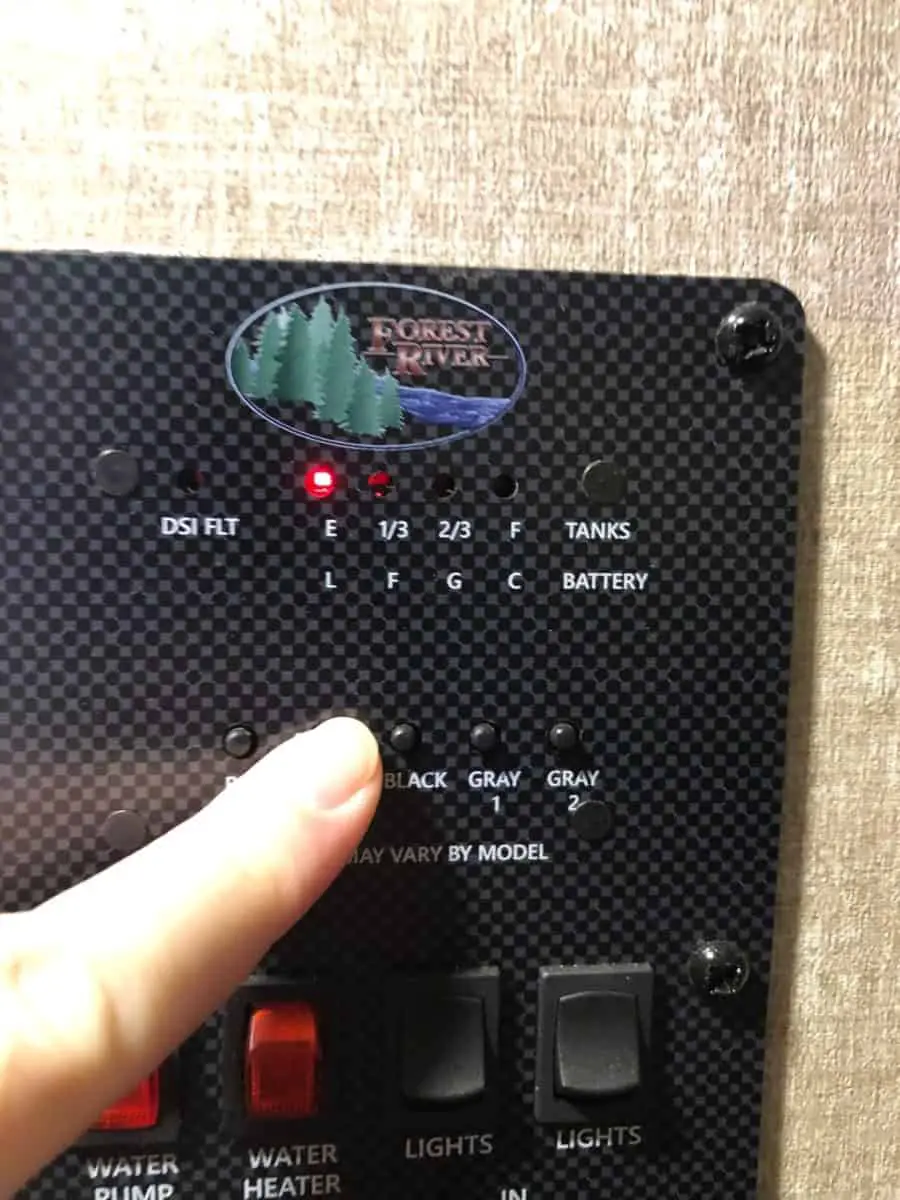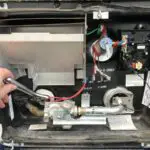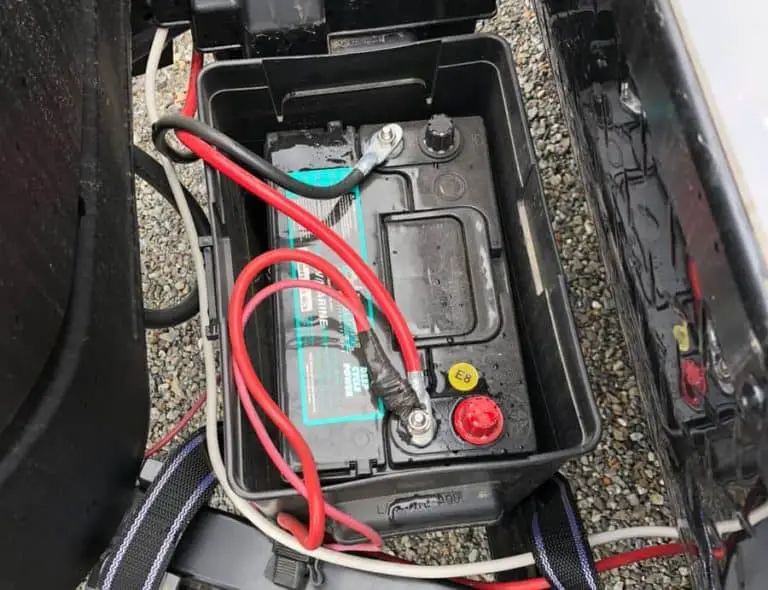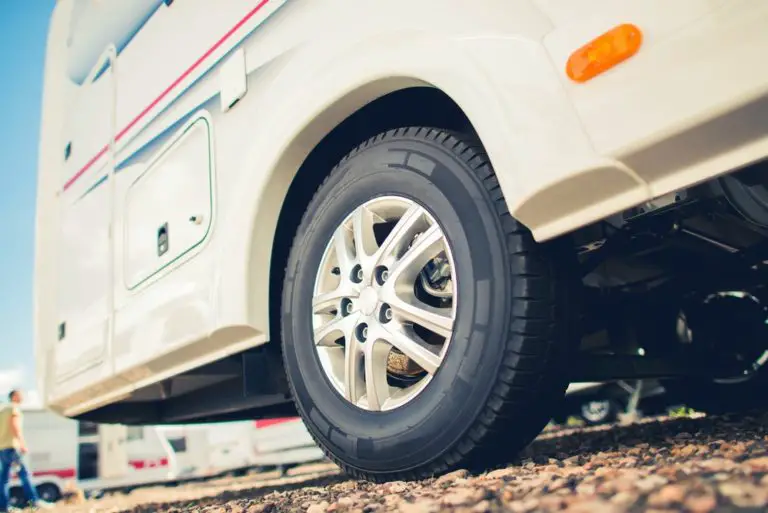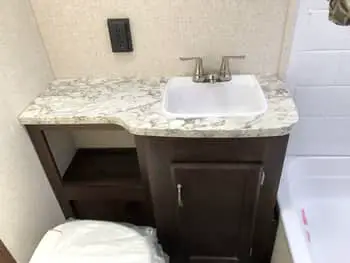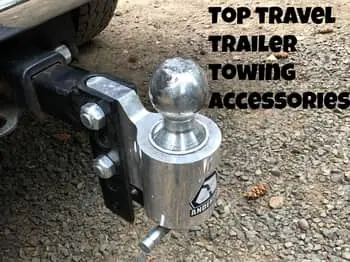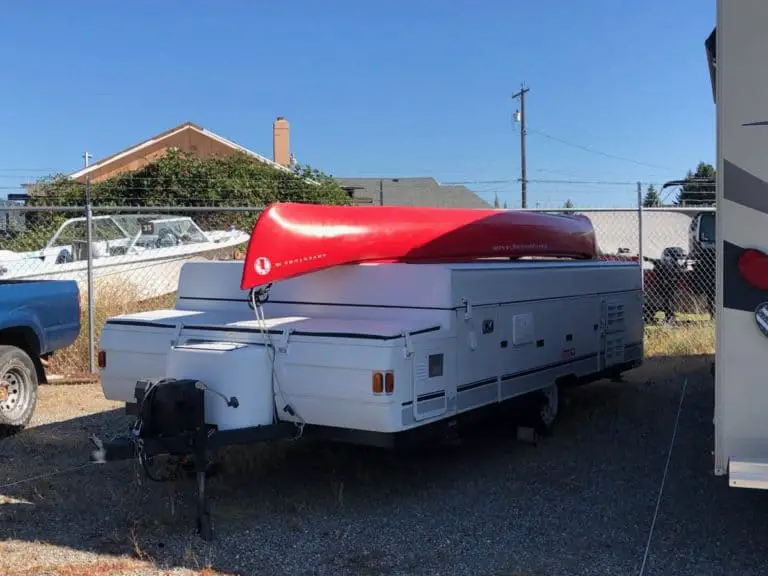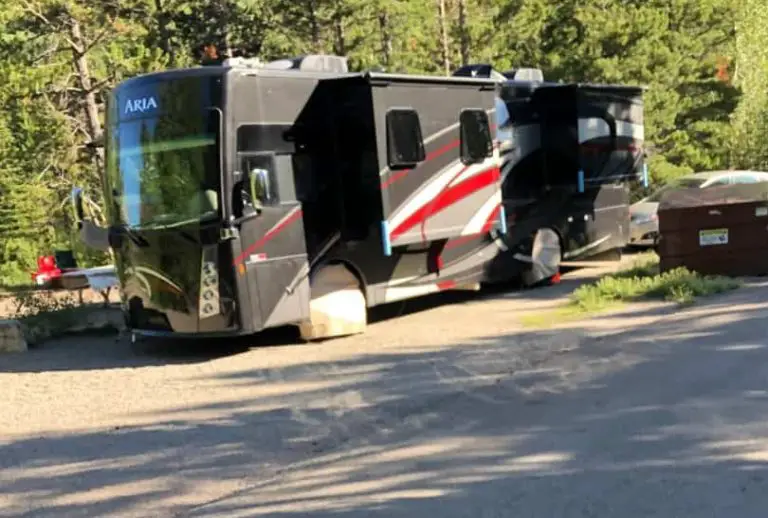How To Run Residential Refrigerator While Boondocking
Cold storage is important for boondocking to ensure your food remains fresh. Extended boondocking trips pose a problem for keeping food fresh, which may lead you to consider taking a standard residential refrigerator to boost your cold storage capacity. Is it possible to operate a residential refrigerator while boondocking?
A residential refrigerator can be used while boondocking by installing an inverter and boosting the battery capacity in the RV. Dedicated circuits will be required for the fridge. For shorter trips or one-off trips with a residential refrigerator, a silent generator can be used to power the unit.
Boondocking, by definition, means that you will need to supply the energy requirements for all the appliances you need for your camping trip. This includes any residential-type appliance you take along for convenience. Residential refrigerators generally have high power-overheads, so assessing whether your power system can handle this appliance is important.
Ways to Power your residential RV refrigerator on your RV
Generator: This is the easiest way, but will be louder and the refrigerator will only run when your generator is on. This will not require permanent modifications to your RV, but will need to run all the time. Here is the generator we have and have loved for several years.
Inverter w/ Lithium Batteries: This is the quiet option that won’t leave your food getting spoiled if you forget to run your generator all the time. You will need a solar kit to charge the batteries, or a generator as well. This will require permanent modifications to your RV. We have this inverter and two of these great batteries. Use code savvycampers for 15% off your purchase.
Solar Generator: This is a good option if you want the silent way. You can recharge your solar generator with solar or a generator. This will not require any permanent modifications to your RV. We have this solar generator and it works great for us as it has some of the best features on the market.
The best way will be a combination of some of the items below. A generator or solar kit pared with an inverter and lithium batteries or the Solar Generator would be the best option.
The Difficulties Running A Residential Refrigerator While Boondocking
Running a residential fridge in your RV or camper is possible when you are in the RV park or campground using shore power, but boondocking will require a different strategy.
The energy usage of a residential refrigerator is difficult to establish for boondocking because the fridge does not run continuously, making it difficult to estimate its draw on your alternative power systems.
Once the refrigerator’s internal temperature has reached the desired setting, the compressor is switched off, drastically reducing the unit’s power consumption.
The biggest problem is when the compressor kicks in again and draws a huge amount of current to kickstart the unit to begin the cooling process again. This high draw when the compressor activates is one of the biggest challenges to running these units when boondocking.
Most camping fridges, fitted in most RVs, have the option to run on 12-Volt power, AC-power, or propane gas. Residential refrigerators require 110 to 120-Volts of AC power to operate.
There may be difficulties in using a residential refrigerator for boondocking, but it is not impossible.
Can You Run A Residential Fridge On Your RV Power System?
You can run a residential refrigerator on your RV 12-volt system, but you will require an inverter to convert the 12-Volt DC supply to the 120-Volt AC supply needed for the refrigerator. Another way is through a generator.
The refrigerator should also be on its own dedicated circuit with its own AC breaker installed in the breaker box.
This will allow the fridge to run on the 12-Volt system, but it will be a significant drain on your batteries. Consequently, you should only select a residential fridge that your system will be able to cope with.
Solar panels will help to keep the batteries topped off to keep the refrigerator working during the day, but the fridge could drain the batteries overnight when there is no supplement at power coming from the panels.
You could run a generator at night to charge the batteries, but the constant noise from the unit may not be desirable throughout the night.
Boost Your Battery Capacity To Run A Residential Fridge When Boondocking
One solution to the problem is to boost the battery capacity in your RV. Most standard house or coach batteries are not designed to run typical household appliances.
Lithium batteries intended for household solar systems have a greater capacity to run household appliances than standard RV coach batteries.
Beefing up your battery bank with these heavy-duty batteries will not only allow you to run the residential fridge from these batteries at night but also enhance the capability of the system to run other appliances. These batteries will usually provide 50% more power than their lead acid counterparts and require no maintenance.
The other upside to these lithium batteries is that they will take shorter to charge via the solar panels than your normal coach batteries so it is a win win. You will need to assess your solar panel array capability and assess whether you need additional panels or higher wattage panels to charge the batteries more efficiently.
Lithium batteries are the best choice for this purpose because of their smaller footprint to power output than lead-acid or gel batteries, which are heavy and bulky.
Use An Inverter Generator To Run A Residential Refrigerator When Boondocking
Some travel trailers, 5th wheels, and many Class A RV’s have normal residential refrigerators built in. If you have an on board generator, you will be in luck to run this item, but if not, you may need to make some changes.
If you are taking a residential fridge with you for an extended boondocking trip to supplement your cold storage, then it is not worth changing your RV electrical system for a single trip.
In this case, you need a temporary solution to run the refrigerator for the duration of the trip. The best solution here is an inverter like the one we have and love to run our 110 volt devices, generator, or a or solar generator.
Inverter generators like the one we have here are smaller than standard generators and run significantly quieter than standard generators. It is useful to have a solar generator such as this one we have as a backup power source should you have multiple cloudy or rainy days which affect your solar system.
Another advantage of solar generators is that they produce clean power suitable for powering or charging sensitive electronic equipment.
If it is for a single trip, you could dedicate the solar generator to running the residential fridge and have some capacity left from the generator to charge digital devices such as mobile phones, cameras, and GPS units.
The downside to this strategy is that solar generators may still need to be charged; a solar kit can help with that. This system is truly portable and will connect to your Lion Energy Safari ME solar generator for a great system to use off grid.
Choose A 12-Volt Residential Refrigerator For Boondocking
With solar power and lithium batteries becoming a popular option, many refrigerator manufacturers produce 12-Volt fridges intended for RV solar systems. You would need to order this when you purchase your RV, or retrofit it into your RV.
These fridges cost a little more but would not require any modifications to the wiring in your RV. Modern 12-Volt fridges are efficient and work well for this application.
The most you may need to do to cater for this type of fridge is increase your battery capacity to cater for the additional load.
Conclusion
It is possible to run a residential refrigerator when boondocking, but you will, in all likelihood, need to make some modifications to your RV electrical system.
AC-powered residential refrigerators will be the most energy-hungry appliance in your RV, and you will need to generate enough power to support the appliance.
A 12-Volt residential refrigerator would be a better choice from an energy usage aspect and require fewer modifications to your RV.
Be the first to be notified about FREE tips, hints, coupon codes, and email-exclusive information. All for FREE!

